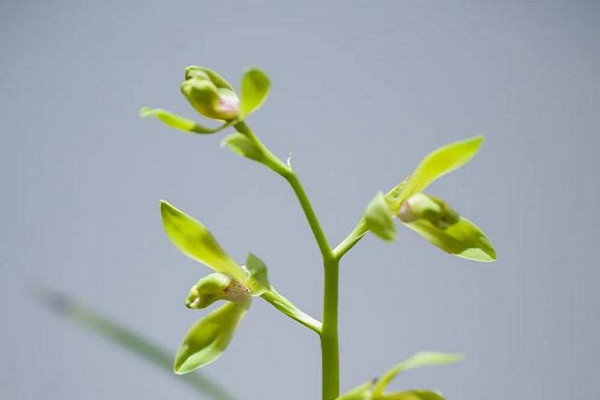The country's theme parks will welcome more than 330 million visitors a year by 2020, making China the amusement park capital of the world
A growing appetite for thrill rides and immersive travel experiences will see the Chinese mainland overtake the United States and Japan to be crowned theme park capital of the world in the next two years.
Increasing public demand has given rise to a boom in theme park development in China, and there are currently more than 2,500 amusement parks across the country.
|
Increasing public demand has given rise to a boom in theme park development in China. Photos Provided to China Daily |
Daily visits to the sites are expected to exceed 330 million by 2020, according to a recent report by Euromonitor International, a well-known global consulting company.
At least 300 of the parks have received investment above 50 million yuan ($7.95 million; 6.6 million; £5.8 million), but they will more than recoup that as retail sales are projected to reach $12 billion over the next two years - a staggering 367 percent growth over 2010.
Of the 20 most popular theme parks among Asian tourists, 13 are in China, according to a report by Themed Entertainment Association, an international nonprofit organization.
Among the heavyweights are Disneyland, which launched its Shanghai park to much fanfare in June 2016, while Universal Studios' Beijing site is expected to open its doors by 2020.
Other international theme parks, such as Japan's Hello Kitty park and South Korea's Lotte World, are also preparing to migrate to the mainland.
However, it's not just the big international parks that are enjoying the ride. Many domestic theme park brands have increasingly made their presence felt as well.
Happy Valley, known for providing simple joys and thrills, is investing in new technology to upgrade its facilities, while the Beijing Happy Valley park will be making a splash with China's biggest waterslide and a thrilling new rollercoaster this summer.
Run by the State-owned Overseas Chinese Town, Happy Valley has ranked among China's most-celebrated amusement park brands, with additional sites in Shanghai; Shenzhen, Guangdong province; Chongqing; Chengdu, Sichuan province; Wuhan, Hubei province; and Tianjin.
Attracting adults between the ages of 20 and 35 during the peak summer months of July and August, the Beijing park welcomes around 10,000 visitors a day on weekdays and double that on Saturdays and Sundays.
Li Xiangyang, deputy general manager of Happy Valley in Beijing, is pragmatic in his view of the recent influx of big-brand international parks, saying that foreign brands not only bring competition, but also opportunity.
"Foreign theme parks introduce Western elements," he says. "This should entice domestic parks to differentiate themselves by developing more Chinese experiences."
Nearly 40 percent of guests who have visited a Happy Valley park have returned, the company says. Li adds that the parks continue to renovate and evolve to provide new experiences to visitors.
Another homegrown franchise, Haichang Ocean Park Holdings, plans to open two new parks, in Shanghai and Sanya, Hainan province.
Scheduled for an August opening, the Shanghai park will cover an area of 29.7 hectares and feature more than 20 polar animal species and 300 fish. A special-effects cinema, science exhibition and interactive experiences with the large marine animals will be among the initial attractions.
Gao Jie, executive president of Haichang Holdings, hopes to attract 3.2 million visits in the park's first year of operation, with a view to reaching up to 6 million annual visits after that.
Speaking of competition from Disneyland - which is a 25-minute drive away - Gao says it acts as an incentive for Haichang to improve products and services.
The company runs eight theme parks, with venues in Dalian, Liaoning province; Qingdao and Yantai, Shandong province; Wuhan, Hubei province; Chengdu, Sichuan province; and Chongqing and Tianjin municipalities.
Last year, the company's ticket sales rose by 10.6 percent year-onyear to 1.18 billion yuan, 291.5 million yuan of which was profit.
Fantawild Adventure, another of China's leading domestic theme park brands, also plans to double the number of venues it has around the country to 40 in the next five to 10 years, according to Ding Liang, the company's senior vice-president.
One new Fantawild park that is already under development will delight fans of the Boonie Bears, a popular domestic animated series for children with significant marketing cache. The Boonie Bears attraction will reproduce classic scenes from the TV show and develop 4D film and stage dramas to entertain visiting families.
Last year, the domestic tourism market hosted 5 billion visitors, and a significant number of them opted for theme park experiences, the China Tourism Academy reports.
Both Happy Valley and Disneyland appear in the top 10 destination list compiled by the academy following the recent Tomb Sweeping Day holiday.
More than 31,000 tourists visited Qingdao Haichang Polar Ocean World, up by nearly 64 percent over last year's holiday, while Qingdao Forest Wildlife World received over 22,000 visitors, and Qingdao Fantawild Dreamland welcomed 36,400 - a record high.
The growing ranks of the Chinese middle class have brought prosperity to theme parks, says Lin Huanjie, head of the Institute for Theme Park Studies in China.
However, success is a double-edged sword and, with the rapid rise in the popularity of amusement parks, homogeneity and a lack of distinctive cultural themes at some attractions have spurred Chinese authorities to issue guidance for future park developers.
Those promoting Chinese culture and containing original, creative attractions will be encouraged, while those acting as a loosely themed facade for housing and office projects, or featuring unclear concepts, imitations or low-standard duplications, will be banned.
Lin welcomes the guidance, expressing his belief that it will help to preserve the healthy and sustainable development of theme parks in the country.
yangfeiyue@chinadaily.com.cn


